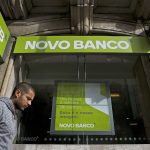Portugal to issue Chinese Panda Bonds
The Chinese government has given the green light for Portugal to sell Chinese sovereign debt or Panda Bonds.
Panda Bonds will be available for sale on the market in Portugal from next week.
It is the first time that China, which holds debt in euros and US dollars, has allowed a Euro Zone country to sell Panda Bonds.
The move is part of a strategy to diversify sources of finance and has been in the pipeline since the end of 2017.
The project is being led by Ricardo Mourinho Félix, the Secretary of State for Finances, following on from the visit to China by Portuguese Prime Minister, António Costa.
“This is excellent news. Portugal will be the first country in the Euro Zone to issue bonds in renminbi” (which literally means ‘people’s currency’ — the official currency of the People’s Republic of China with its basic unit referred to as ‘yuan’) said Ricardo Mourinho Félix in a statement to online news agency ECO.
Portugal will issue 2Bn renminbi, the equivalent of €260 million. The sale will be carried out on the 29 and 30 May.
The bond issue will have a three-year maturity and it is probable that it will have a higher cost than the equivalent issue in euros (the yield will be -0.222%).“The pricing will only be closed on the day of operation, but it is anticipated that it will be greater th
an the equivalent in euros,” explains the Secretary of State of Finances. “It is the cost of entering a new market.”
The fact that debt is being issued in Chinese currency will mean that the IGCP (The Public Treasury and Debt Management Agency) will have to carry out a risk cover operation (an exchange hedge) to prevent the bonds being exposed to exchange rate fluctuations.
The amount made available for sale is limited because it is the first time that Portugal is risking issuing bonds from a Far Eastern market.
But the licence that Portugal has secured means that the Chinese government will enable Portugal to issue Panda Bonds in future.
“The goal of the issue is for Portugal to operate in a vast market with a great deal of liquidity,” says Ricardo Mourinho Félix.










